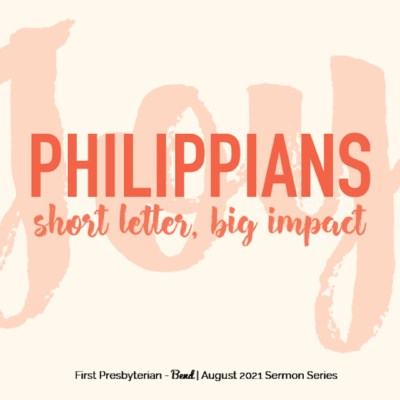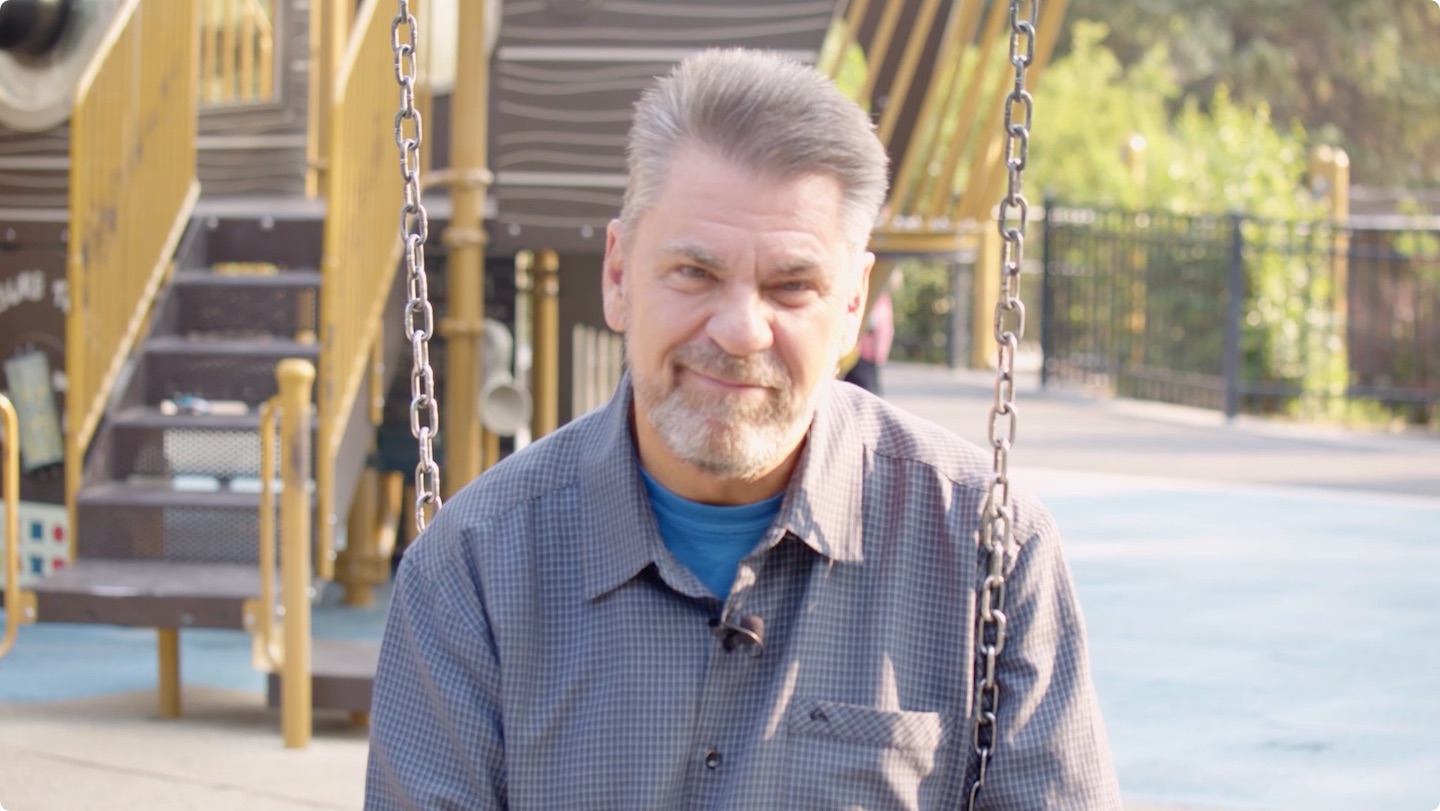Aug 1st, 2021, Choosing Joy, Giving Joy with Rev. Dr. Steven Koski.
A Part of the Series:
Rev. Dr. Steven Koski
Other Articles in:
Aug 1st, Choosing Joy, Giving Joy with Rev. Dr. Steven Koski
In John, 15, Jesus says, “May my joy be in you and may your joy be full”, you know, could it be that God’s desire for us is to know joy? To know joy, not just when our suffering and challenges are over, but to know joy in the midst of our adversity. To experience joy as a way to cope with adversity, the Dalai Lama and Archbishop Desmond Tutu, you know, devote their lives to ease the suffering of the world.
They are both just compassionate and courageous and they both laugh easily and and heartily. They wrote a book together called The Book of Joy, where they write, Discovering more joy does not save us from the inevitability of hardship and in heartbreak. In fact, we may cry more easily, but we will laugh more easily to as we discover more joy, they wrote, we can face suffering. In a way that ennobles rather than embitters. We have hardship without becoming hard.
We have heartbreak without becoming broken. Joy, you know, joy is a form of resistance in a world that knows so much pain. Joy doesn’t minimize or or deny the realities of pain and suffering. Joy Joy pushes back the darkness and says, you are not winning today. You will not have the last word. God desires for us. To no joy, even in the midst of adversity, and maybe maybe especially because of adversity, during the month of August, we’re going to take a deep dove into the book of Philippians, what scholars call a letter of joy.
And we’re going to turn to an expert on the subject, the Apostle Paul, for some clues how to find joy in our tradition, says Paul wrote this letter to the church at Philippi in the year 62 ad from a prison cell in Rome. Now it’s just four chapters long. You can read it actually in about ten minutes. But I encourage you to read a chapter a week during the month of August, taking time to pause and reflect on what is being said.
Paul talks about joy and gladness 14 times and in four chapters. And he focuses on joy. Writing from a prison cell, not sure if he’s going to be set free at the end of his trial. Or if he’s going to be put to death. And in that context, he writes a letter of joy. Well, what do we know about the circumstances of Paul? He was in prison because he had gone to Jerusalem and the Jewish authorities said he was he was agitating the crowds, teaching false doctrines, inciting a riot in the temple.
So charges were brought against him. Now, Paul was actually a Roman citizen, he could appeal his case to to Rome, so it’s very likely. He was in a prison cell in Rome waiting for the outcome of his trial. Really sitting in that cell, not sure if he’s going to live or die. And somehow in his heart, he finds it to write a letter of joy. In fact, Paul’s entire ministry as a follower of Jesus was filled with the challenges and suffering.
We read in Second Corinthians 11 that Paul had been in prison many times. He was beaten, stoned, shipwrecked, often without food or drink in the cold with our clothes. We read in the book of Galatians that that he had some some physical affliction, some problem with his eyes. And yet near the end of his life, he writes a letter of joy. Somehow, somehow, Paul found joy in the midst of it all, and as we explore his letter to the Philippians this month, you know, it’s my hope.
It’s really my hope that we, too. Might find joy in the midst of the adversity that we face. So let’s let’s begin with just a little background to the city of Phillipi now. Paul leaves Jerusalem and he first visits Phillipi, which which is actually about an eight eight hundred mile journey. His first visit is in the year. Fifty two A.D. Phillipi is in what is now modern day Greece. And there’s this major roadway called the Ignacia that actually takes you through Phillipi, where you then go to catch a boat to go to Rome.
Now, Paul comes first to Phillipi in 52 A.D. To preach the gospel. It’s in that first visit that he that he baptizes Lydia, his first convert on European soil. And he also cast out a demon from a slave girl who who is a fortune teller and the owner of the Slave Girls Furious. And has Paul arrested? This is in 52 A.D., his first trip to Philippi, 10 years, ten years before this letter, he wrote to the church at Philippi.
So Paul and his companion, Silas, they’re beaten in public, they’re stripped naked, they’re thrown into the prison. So there they are, beaten, bloodied, bruised, shackles on their feet. And it says in the Book of Acts around midnight, Paul and Silas were praying and singing hymns of Thanksgiving to God. So after being beaten nearly to death. What do they do? They sing. They give thanks to God. Now, there’s a clue for us.
Joy doesn’t make you grateful. It is gratitude that makes you joyful, as Michael Franti, the singer, says, we don’t sing, dance, laugh and and find joy to escape life. We sing, dance, laugh and find moments of joy to keep life from escaping us, to keep hope from escaping us. So here we get a picture of Paul’s faith and actually how Paul tried to live his life, how he saw life. So now it’s 10 years later and Paul is in a prison cell in Rome.
And then those 10 years, the church at Philippi has grown to probably probably about fifty to seventy five people. And Paul has developed, you know, a really deep bond of friendship with them. So the church community sends one of their own, Epaphroditus. Sends him to Rome with food, with blankets, with with money to support, encourage and take care of Paul while he’s in prison and waits for the outcome of his trial. Well, scripture says Epaphroditus gets sick and when he recovers.
Paul sends him back to Phillipi with this letter, the letter of Philippians, to thank them for the blessings that that had given him. That’s the background. So with that background in mind, I want to read Philippians, one from Paul and Timothy, Slaves of Christ Jesus to all those in Philippi who are God’s people in Christ Jesus. May the grace and peace from God, our father and the Lord Jesus Christ be with you. Now, that would be a typical greeting and probably every letter in that day.
And then Paul continues, I thank my God every time I mention you in my prayers. I’m thankful for all of you every time I pray. And it is always a prayer full of joy. I’m glad because of the way you have been my partners in the Ministry of the Gospel from the time you first believed until now. Did you notice the words? Thanks. Prayers, thankful. Pray, prayer. All of that leads to joy. And gladness.
This little verse teaches us that one of the primary practices. A finding joy in the midst of adversity. Is gratitude. Now, Joy doesn’t make us grateful. Being grateful makes us joyful. And gratitude is most important when it seems that there’s there’s very little to be grateful about, Meister Eckhart said. The only prayer we ever need is two words. Thank you. You know, it takes. It takes a lot of courage. To grieve. It takes spiritual courage.
To be grateful to allow yourself moments of joy. In spite of your grief, the student asked a spiritual teacher, what is the harshest circumstance, the greatest difficulty a person can experience on Earth? The teacher said the worst condition in life. Is to be ungrateful. If you suffer from ingratitude, it well, it won’t matter what blessings and goodness are in your life because you won’t be able to see them. Or receive them. You know, Grace.
Graces the undeserved gift of life, the gift of the gift of every breath, the gift of God’s unconditional love revealed to us in Jesus, a love from which we can never be separated. Joy. Is when we know it. And gratitude is the spiritual practice that opens our heart and eyes to that awareness. So in that first chapter. Paul is is thanking God. For the members of the church at Philippi. And for the relationship that they have have kind of formed and shared over the years.
Paul is grateful for their friendship and their partnership. And Paul is grateful for Epaphroditus who who came to be with him, to support him, to encourage him in prison. You know, I think one of the most difficult things during the last 18 months of covid. Has been the isolation and and loneliness that so many people have experienced and continue to experience. The surgeon general recently stated that. But loneliness is an epidemic. A study in Great Britain found that chronic loneliness can have the same impact on a person’s health as smoking 15 cigarettes a day.
We need connection, we need each other, you know, a major focus for us in the next few months, this coming fall, a major focus for us will be to restore connection. To rebuild and renew a sense of community. The church at Philippi, they couldn’t be there for Paul, so they sent Epaphroditus as a way of saying, Paul, we’re with you, we love you, you’re not alone. And that brought Paul and Joy.
You know, that’s how we share joy in the face of adversity. When we go out of our way to bring joy to others, it’s then that we will find joy comes back to us. So who is it, you know? Who needs a word of encouragement today? Who is like Paul in that prison walking through adversity, please, always, always let us know who needs support. But you can be Epaphroditus. You can be the one who reaches out with a phone call, a note.
Some form of care. So who is God calling you to reach out to you, you know, and when we when we take the time to reach out? We just might find Joy comes back to us. You know, I want to take a second to to differentiate joy and happiness. I mean, they’re different. Happiness is the feeling we experience as the result of positive circumstances in our lives. We get a raise, our our team wins, our child wins an award, and we’re happy.
You know, happiness is a feeling we get because of of external circumstances. Joy is different. Joy is a deep, deep sense of well-being and in spite of our circumstances. Joy doesn’t come from our circumstances, but from our convictions and how we choose to look at our circumstances. Joy comes from knowing that that even though no one can promise you that, that everything’s going to be OK. We know that will be OK. Because we belong to God and we are loved with a love from which we can never be separated.
In Philippians one 12, Paul says. Brothers and sisters, I want you to know that the things that have happened to me have actually advanced the gospel, the whole Roman guard knows that I’m in prison for Christ. So Paul has this confidence, this conviction. That even in the worst circumstances. God can bring something good from it. Let me be clear, God doesn’t cause the suffering. But God refuses to allow the suffering to have the last word.
Paul sitting in a prison cell knowing he could be put to death. But he has this fundamental conviction that the worst thing will never be the last thing. I was visiting someone last week who… who is in hospice care. She holds in her hand a rock that is in the shape of a heart. And she actually refuses to let it go. As it reminds her of God’s love. That holds her. And refuses to let her go. You know, she said to me.
I’m ready. I’m ready and I’m at peace for what’s next. I know I’ll be OK. In the meantime. I’m just going to do my best to live each day I’m given as a gift and try to live it as best I can. You know, that’s not a bad way to live our lives knowing the worst thing will never be the last thing. And doing our best to be grateful. But the gift of each day. And to try to live each day as best we can, bring as much joy as we can to others.
God’s desire for you. Is for you to know, Joy, even in the midst of adversity, joy doesn’t come from our circumstances. Joy comes from our convictions and the way we choose to be in the world, and joy comes from our relationships, when we can be like the church at Philippi, when we can be like Epaphroditus and reach out and bring joy to others, Joy has a way of returning to us. Friends may you know, Joy, may your joy be full, but most importantly, may you help someone else experience the joy, the joy of knowing that they’re not alone and that they are loved.
May it be so.


